Legacy Stories
John Stephen McGuire
John Stephen (Steve) McGuire was raised in a tight-knit farming community in Nebraska, growing up the oldest of five rowdy boys who had legendary sparring matches. He was a hard-nosed quarterback for West Point’s 150-pound team before his deployment to Vietnam. Upon returning, Steve earned multiple degrees and practiced law as an attorney. In his later years, he became impulsive, angry, and battled alcohol addiction. He passed away in October 2022 at the age of 79. Steve’s family later donated his brain for study at the UNITE Brain Bank, where researchers diagnosed him with stage 3 (of 4) CTE. Below, Steve’s daughter Meagan shares his Legacy Story.
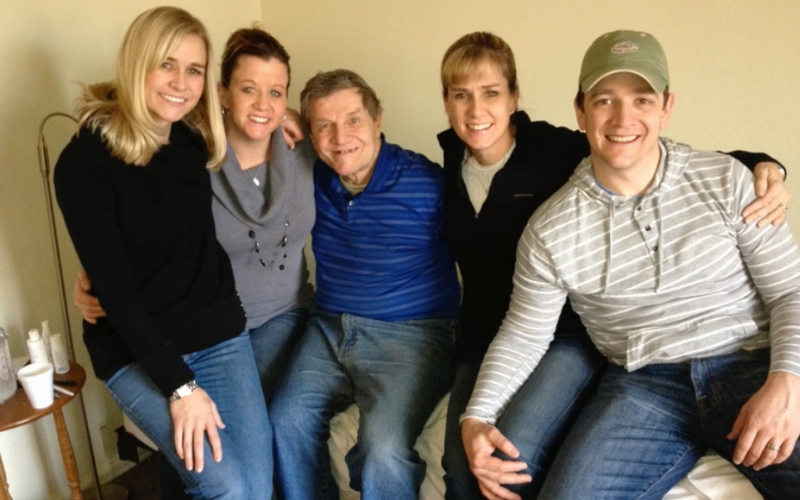
By Meagan Frank
I’ll never know the level of pain and suffering our dad endured in his life, but receiving a possible explanation for his tragic story has softened the raw edges of our family’s complicated journey.
Growing up, I heard stories about this mythical version of our dad. The one who was a small-town football hero, a rising star at West Point, a brilliant attorney with multiple degrees, and a beloved leader in all the spaces he occupied. My older sister remembers the fun-loving and attentive father who had started to fade away by the time me and my younger siblings arrived. He was at the start of losing everything.
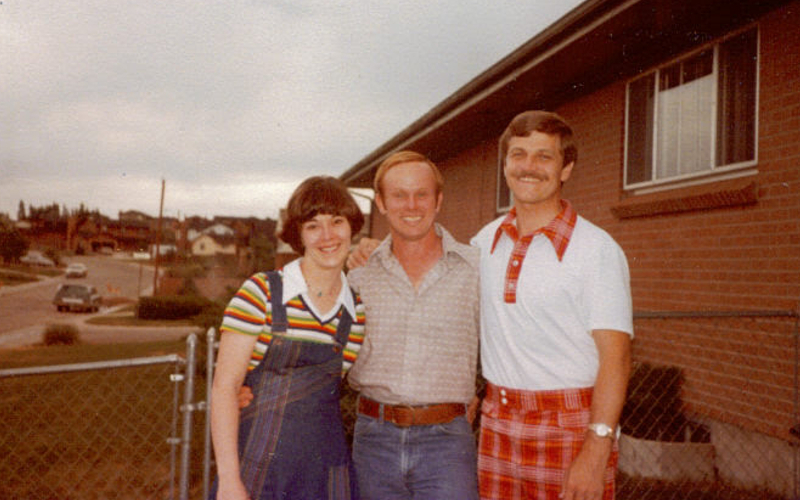
He was likely in the throes of a CTE nightmare he couldn’t identify and no one around him understood.
We blamed alcoholism for his behavior. The contents of basement-stored alcohol would simply vanish. He’d spend hours tucked away around the house in places we all knew never to visit. He’d have bursts of rage, drunken verbal altercations when attending our sporting events, and DUIs for which he eventually served jail time. Just when we thought he might be able to move away from his behaviors, he would find a way to slip further away from us.
Our parents ultimately separated and then divorced. For a while, our dad managed in a different marriage. That too fell apart, as did his professional life and ability to care for himself.
Three separate times the courts ordered guardianship be put in place. The first time, his younger brother agreed to that responsibility and worked to get him admitted to a veteran hospital. Dad got sober, received regular meals, and improved in many ways. He became competent enough to employ his skills as an attorney to sue his brother and have the guardianship revoked.
A little over a year after winning his freedom in court, he went down another spiral. He went missing several times, required nine ambulance rides in the span of nine months, leading social services to once again request the help of a guardian. This time, it was a cooperative effort between three of his younger brothers and me. Once again, he wasted no time putting the wheels of justice in motion. He sued the four of us, and the court agreed with my dad’s assertion that he had a right to his own life. That guardianship was also dissolved.
He was putting up an impressive fight against his family — and sometimes his addiction — but we know now he was battling much more than that.
My dad’s executive function continued to weaken, and he spent nearly a decade in and out of care facilities, homeless shelters, rundown apartments, and sketchy motels. His siblings and my brother continued to help in any way they could. They collected him from the hospitals, checked up on him regularly, bailed him out of police detox, and kept him alive a lot longer than he might have all on his own.
For a while, a state-appointed guardian assigned him to care facilities, where he would manage to get kicked out. My dad ignored facility rules and acquired prohibited alcohol regularly. The battle continued.
A fall he took in 2014 left him with a broken neck and an assignment to a care facility for rehabilitation. He eventually healed, but was never able to live on his own again. He lived the last eight years of his life in the care of wonderful nurses and staff. By the time he died, he had suffered a couple strokes, and his dementia was quite advanced.
It was during his “quiet” years as a nursing home resident that I attended a concussion symposium and learned about the various behaviors present in people suffering with suspected CTE. I began to wonder whether any of our dad’s story could be tied to his time playing football, sparring and boxing with his brothers and West Point classmates, or playing catcher on his baseball team. My suspicions only grew as I learned more about the disease.
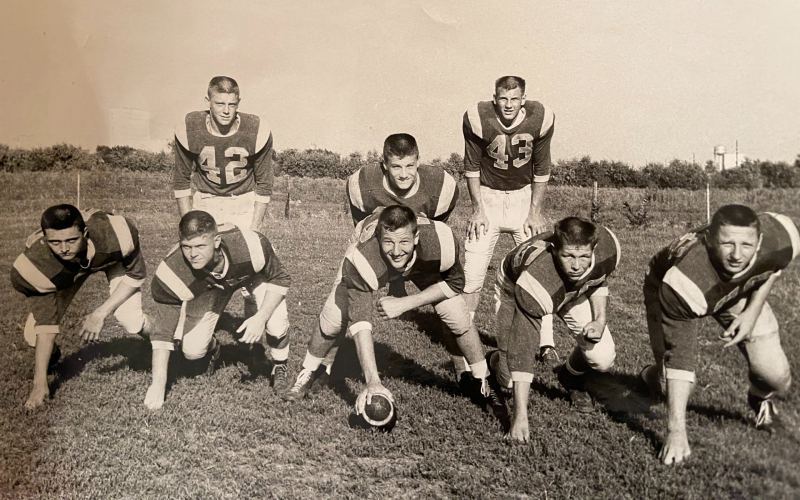
Our dad was a small “running quarterback” for his high school and college teams. In several articles about his team, he is pictured carrying the ball and leading with his head. He likely ran into many bigger bodies each time he was the ball carrier, which was often. He played for nine years, including three at West Point. He was an active oldest brother of five boys from a farming community in Nebraska, and there are plenty of family stories about McGuire sparring matches. Well before concussions and head injuries were a concern, our dad was likely rattling his brain with regularity.
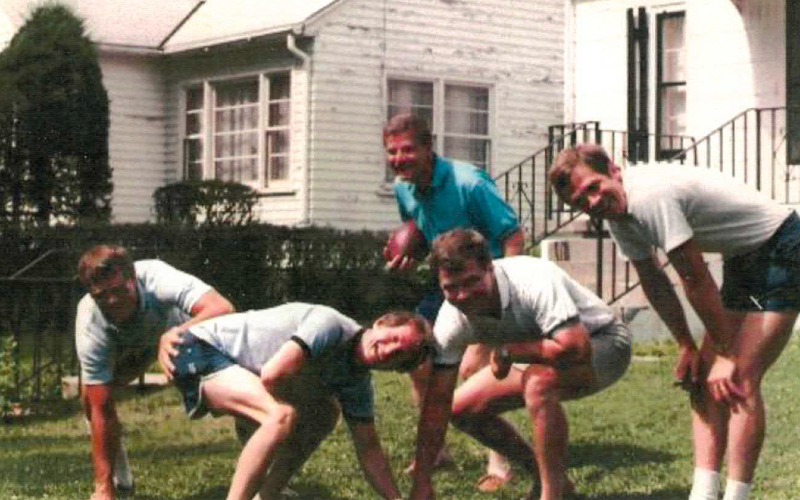
The results confirm what we suspected. The pathology identified that by the time he passed away at age 79, our dad had stage 3 (of 4) CTE. Dr. Thor Stein of the BU CTE Center wrote in his conclusion, “Overall, it is likely a combination of CTE, neuropathological changes of AD (Alzheimer’s Disease), and vascular disease that contributed to his cognitive decline and dementia. His long-standing alcohol use likely also contributed to cognitive and behavioral symptoms.”
Our dad was a gifted and brilliant man. His brain provided opportunities for him at the start of his promising life. He used that brain to battle many challenges along the way, not knowing his own neurological ailments were the reason he felt the need to fight in the first place. It seems appropriate his brain is now part of the ongoing research to combat the destructive and debilitating effects of CTE. It’s the sort of impactful Legacy his story deserves.
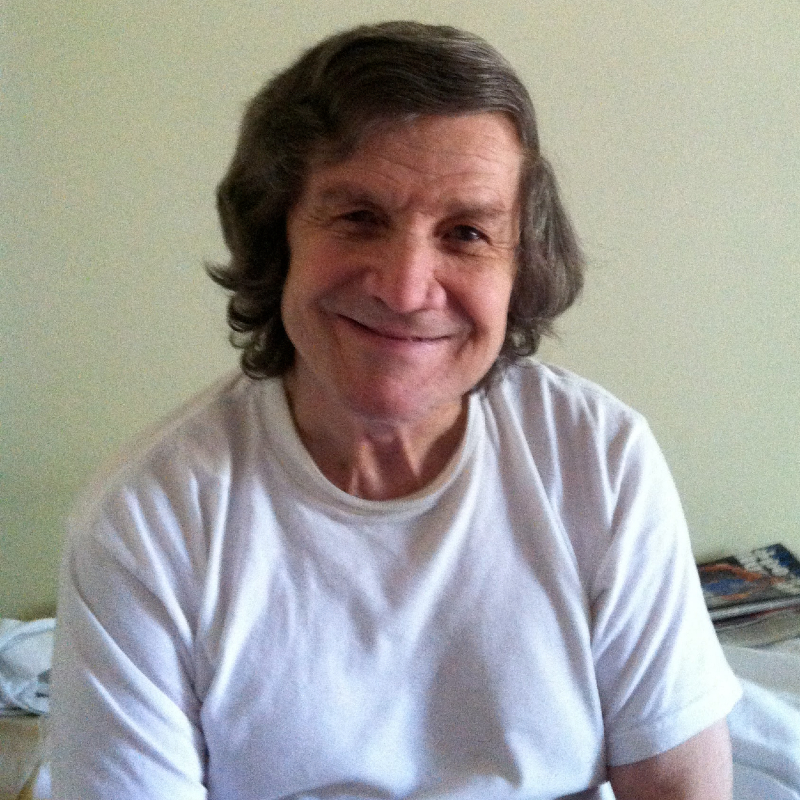
Our Dad's Obituary
John Stephen (Steve) McGuire, 79, raised in Fremont, Nebraska, died on October 20th, 2022, at Cherrelyn Healthcare Center in Littleton, Colorado. He had been a resident of the facility for eight years.
Steve was born on June 16th, 1943 in Salt Lake City, Utah where his father was stationed before his deployment to Okinawa during WWII. Steve was the oldest of five boys born in the span of six years and the first of what would eventually become 89 first cousins for the large farming family of McGuires from Wisner, Nebraska.
A successful high school athlete, Steve earned Hall of Fame recognition from St. Patrick’s/Archbishop Bergan High School for his successes competing in football, basketball, baseball, and track.
He attended Creighton University for one year before accepting his appointment to the U.S. Military Academy at West Point. He graduated in 1966 and, upon graduation, was commissioned in the Signal Corp (Communications). He was assigned to the 1st Signal Brigade in Vietnam, where he was awarded the Bronze Star Medal for meritorious service in combat and the Army Commendation medal for exceptional performance. He was a Captain when he resigned in 1970.
Post-military service, Steve attended the University of Colorado at Boulder, where he earned a law degree and an MBA. He practiced as a patent attorney in the Denver law firm of Roath and Brega for several years.
By his late forties, Steve struggled personally and with health issues that significantly impacted the rest of his life.
After admittance to Cherrelyn Health Center in 2014, he enjoyed lucid and positive moments before dementia became his last battleground. Despite all the challenges endured by those who cared for him, Steve was a well-loved man who took up a lot of space in the hearts of those he touched. He was blessed with an incredibly caring staff at Cherrelyn who journeyed with him in his final years, as well as a large family who loved him his entire life.
You May Also Like

Living with suspected CTE can be difficult, but CTE is not a death sentence and it is important to maintain hope. Find out how.
Living with CTE
Although we cannot yet accurately diagnose CTE in living people, a specialist can help treat the symptoms presenting the most challenges.
CTE Treatments